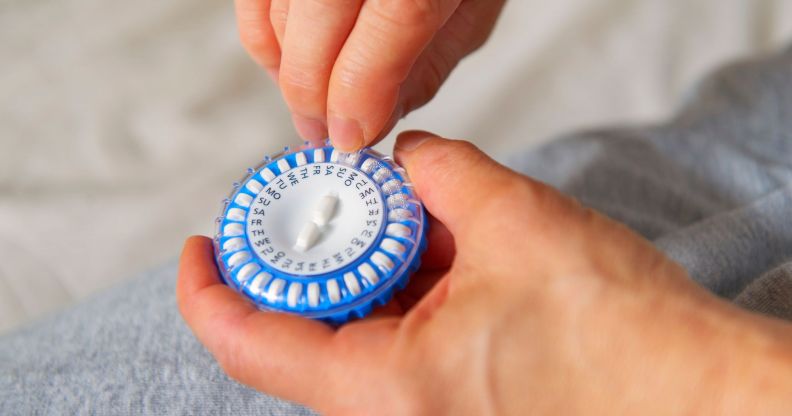No, trans women aren’t causing an HRT shortage

the HRT shortage is not being bolstered by trans women. (Getty)
Transphobes are, yet again, blaming trans women for the UK’s hormone replacement therapy (HRT) shortage, and nothing could be further from the truth.
The conspiracy was resurrected yet again after so-called ‘gender-critical’ activists falsely claimed that their lack of access to hormone replacement patches – which can be used to treat menopause – was the fault of trans women.
Others claimed that drugs used for HRT were being “wasted” by trans women and that they believed hormones were being “handed out like candy” by medical organisations.
This conspiracy theory is not only false, but it perpetuates the false assumption that HRT serves no medical benefit for trans people who choose to opt for treatment.
In reality, there have been multiple studies across the world that have proved that gender-affirming care can have significant mental health benefits for trans people, including minimising depression, gender dysphoria, and suicidal ideation.
A study in September 2023 from researchers in Melbourne, Australia, found that HRT often reduces suicidal feelings in trans people who choose to undergo treatment by over 55 per cent.
Another study in January 2023, this time conducted in the US by the New England Journal of Medicine, found that gender-affirming care mitigates feelings of anxiety in trans people and that suicidal feelings diminish rapidly.
Are trans people causing the HRT shortage? No, of course not
As for the claim that the rise of referrals for HRT from trans people is causing a shortage, this is not even close to being true.
While there has been a sharp increase in referrals to Gender Identity Clinics (GICs) in the UK over the last few years – the Royal College of Gender Practitioners claims there has been a 240 per cent overall increase in referrals over the past five years – the actual number of referrals pales in comparison to the percentage of cisgender women on menopausal hormone treatment.
It’s also worth noting that this is an increase in referrals, not in those who have been approved for treatment. The waiting times crisis for GICs in the UK means that many of those referred for hormone treatment wont see a prescription for years.
According to a press release from the government in early 2023, around 15 per cent of women aged 45 to 64 in England are currently prescribed HRT, which has increased by around 11 per cent over the last two years.
The Office for National Statistics’ population estimates for 2012-2022 pit the population of women aged 45 to 64 in England at over 7,411,000, meaning that at least 1,111,000 or more women were on hormones in early 2023.
Comparatively, just 3,585 people were referred to a Gender Identity Development Service location in the 2021-22 financial year according to a GIDS report.
If every single one of those patients were given HRT within a year – which is incredibly statistically improbable – they would still make up around 0.3 per cent of those on hormones right now.
While the HRT shortage is believed to partially derive from an increase in demand according to reports from NHS-affiliated groups, it is also worsened by wholesale supply shortages and other factors.
The increase in demand also cuts both ways – the demand for menopausal and gender-affirming care are both increasing and neither is to blame.
How did this story make you feel?

